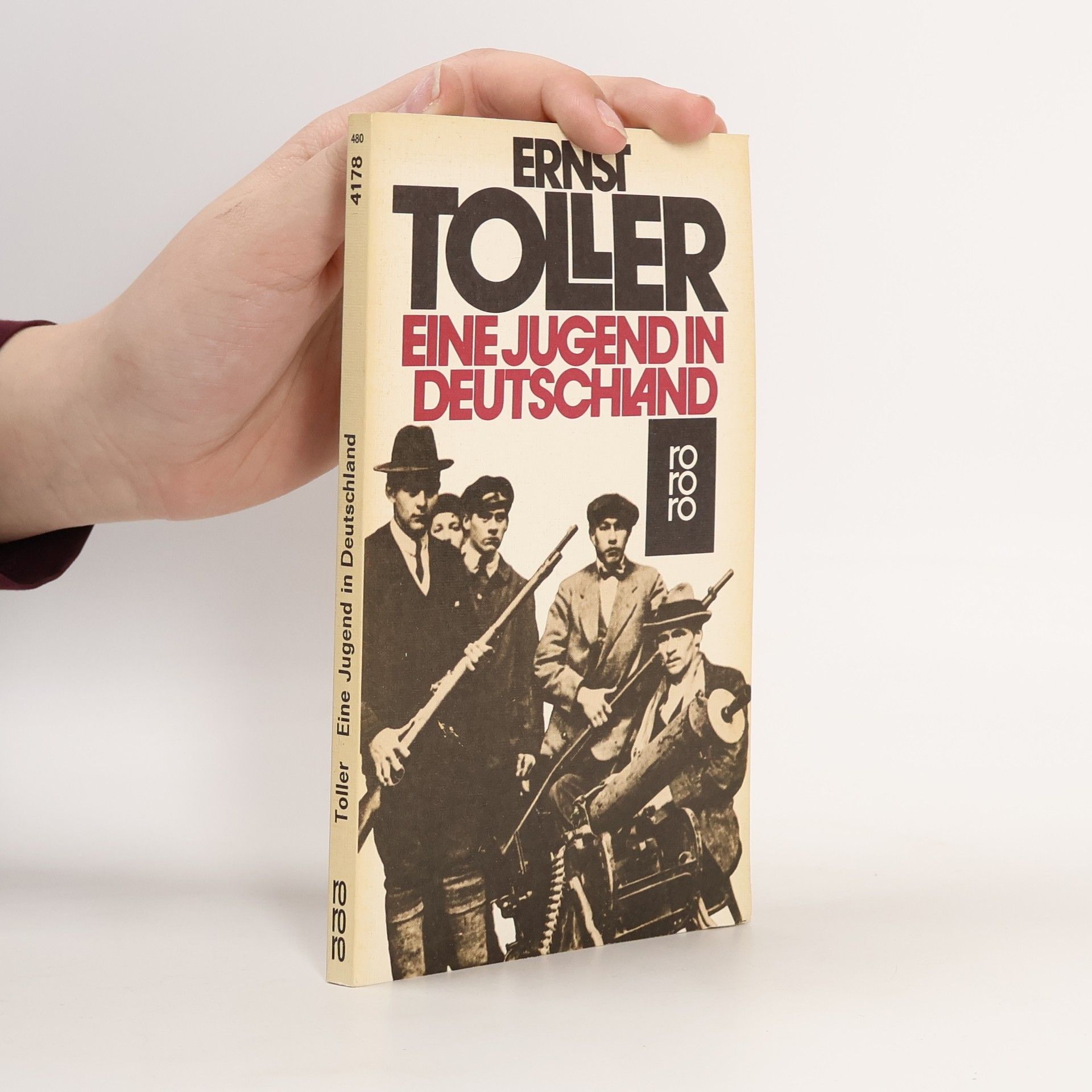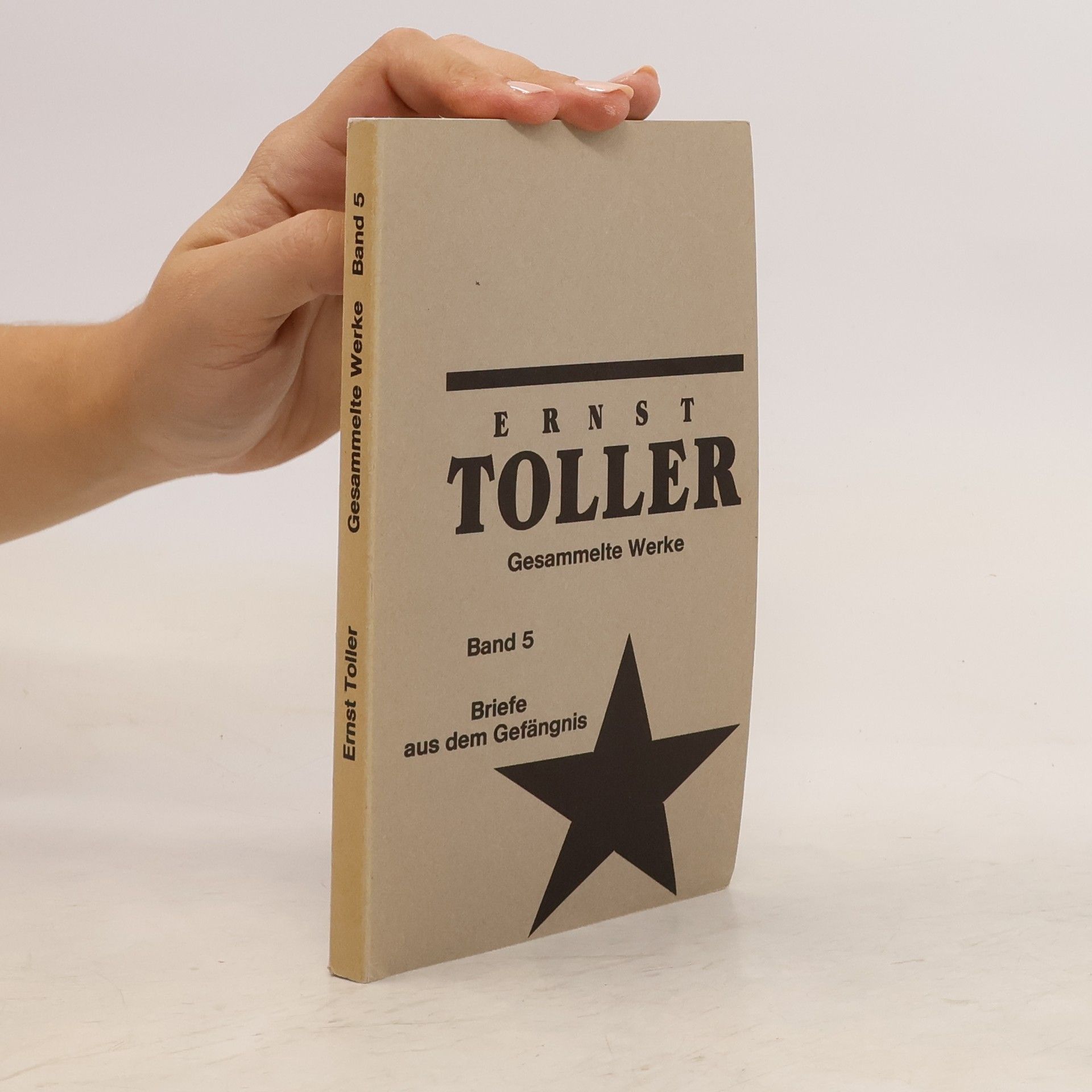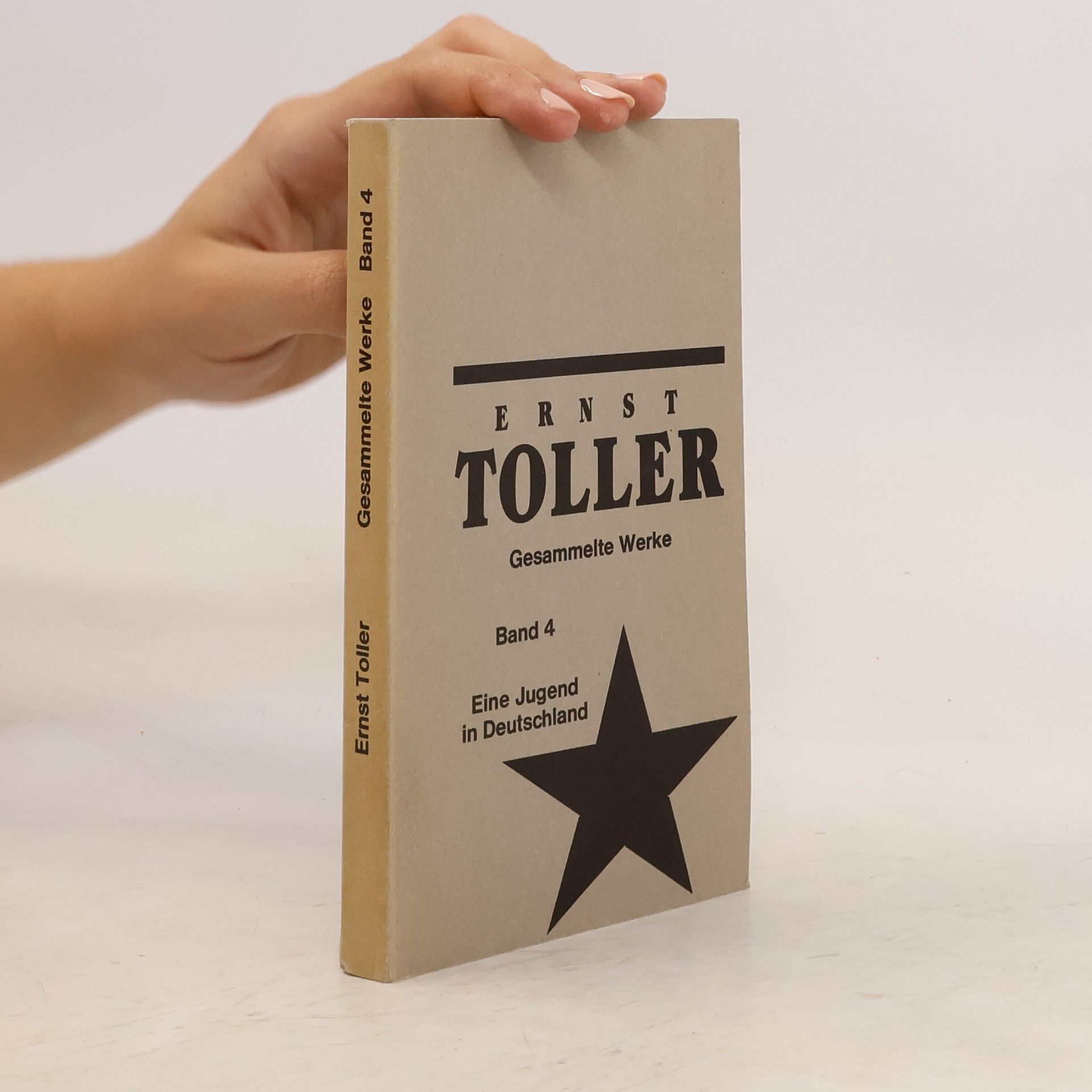An early poetic-play by the author of "Man and the Masses" and "I Was a German" and associate of Kurt Eisner, Karl Liebknecht, and the Spartacists.
Ernst Toller Libros
Ernst Toller fue un dramaturgo y activista político alemán cuyas obras expresionistas extrajeron una profunda inspiración de sus experiencias personales con el horror de la guerra y la agitación política. Sus obras de teatro, caracterizadas por visiones potentes y un llamado urgente a la justicia social, a menudo exploran el choque entre el idealismo y la realidad. A través de sus textos, Toller examinó temas como la revolución, la traición y la búsqueda de sentido en un mundo caótico, ofreciendo a los lectores una profunda visión del turbulento período de principios del siglo XX.






Vormorgen presents a comprehensive collection of Ernst Toller's poetic works, marking the first time in nearly a century that his poetry is gathered in a single volume. This edition highlights Toller's significant contributions to literature, showcasing his unique voice and themes.
Hoppla, We're Alive
Drama
Drew Lichtenberg is an adaptor, translator, and dramaturg who lives in Washington, D.C. He has worked with the Royal National Theatre, the Roundabout Theatre Company on Broadway, La Mama and the Public Theater off-Broadway, and regionally with the Oregon Shakespeare Festival, Baltimore Center Stage, Yale Repertory Theatre, Williamstown Theatre Festival, and others. He is currently the Literary Manager and Resident Dramaturg at the Shakespeare Theatre Company. He has taught as an adjunct at Eugene Lang College at the New School and the Catholic University of America. He holds a Doctorate in Fine Arts from Yale School of Drama.
Eine Jugend in Deutschland
- 166 páginas
- 6 horas de lectura
Als begeisterter Freiwilliger zog er in den ersten Weltkrieg, und als humanitärer Pazifist kehrte er heim. Er schlug sich auf die Seite der Aufständischen, war in der Festung Niederschönenfeld inhaftiert, und er erkannte die tragische Grenze der Revolution. In seiner aufrichtigen und meisterhaft-schlichten Autobiographie beschreibt er seine frühen Jahre - eine Jugend in Deutschland, die voll großer Hoffnungen und voll großer Enttäuschung war. Das wahrscheinlich bedeutendste und wieder bestürzend aktuell gewordene Werk des expressionistischen Autors Ernst Toller, der in Dichtung und Politik keinen unversöhnlichen Gegensatz sah.
Ernst Toller, ein bedeutender Vertreter der expressionistischen Literatur und der "littérature engagée" der Weimarer Republik, thematisiert in seinem Erstlingswerk "Die Wandlung" die geistige Erneuerung nach dem Ersten Weltkrieg. Es erzählt von einem jungen Mann, der die Sinnlosigkeit von Krieg erkennt und seine Berufung zur Menschlichkeit findet.
Tollers Stück, das der Neuen Sachlichkeit der zwanziger Jahre zuzurechnen ist, vergegenwärtigt in einer Revue von Bildern den Zustand der Weimarer Gesellschaft in der kurzen wirtschaftlichen Blütephase zwischen 1923 und 1929; auf diese Periode der scheinbaren Stabilisierung bezieht sich auch der dem den dritten Akt einleitenden Lied von Walter Mehring entnommene Titel. Die Szenenfolge gibt einen Querschnitt durch die verschiedenen Gesellschaftsschichten, vom Proletariat bis zur Aristokratie; der revolutionäre Optimismus der unmittelbaren Nachkriegszeit ist verschwunden, reduziert zu einer »romantische(n) Episode der Jugend«, das private Arrangement mit den Verhältnissen dominiert, die alten Mächte - Kapital und Militär - haben wieder die Oberhand. Dem entspricht der resignative Schluß, der bei der Vorbereitung der Aufführung immer wieder zu Diskussionen Anlaß gab und als zu »defaitistisch« (E. Piscator) kritisiert wurde. Toller verstärkt die Wirkungskraft seiner zeitkritischen Reportage durch die Verwendung der von Piscator entwickelten szenischen Experimente und den Einsatz der neuen Medien Radio und Film; Radiomeldungen, filmische Zwischenspiele und -bilder vermitteln zwischen den einzelnen Schausplätzen des Stücks.
Toller versinnbildlicht in Eugen Hinkemann, dem Helden seiner 1923 uraufgeführten Tragödie die physische und psychische Versehrtheit des Kriegsheimkehrers, die groteske Grausamkeit einer sich noch in Friedenszeiten selbst zerfleischenden Gesellschaft und - den verzweifelten Willen, sich gegen den Untergang zu wehren: »Wer keine Kraft zum Traum hat, hat keine Kraft zum Leben.«
Das Drama "Masse" in sieben Bildern entstand 1919 während Ernst Tollers Haft im Festungsgefängnis Niederschönenfeld und reagiert auf die revolutionären Ereignisse des Jahres 1919; ausdrücklich »den Protariern« gewidmet, versteht es sich als Kampfansage gegen jede Art von Gewalt und wurde doch in Bayern »wegen Aufreizung zum Klassenhaß« verboten. Bereits der Titel - im Erstdruck fehlt der Bindestrich zwischen »Masse« und »Mensch«, wie er in den späteren Ausgaben üblich war ("Masse-Mensch") - verweist auf die Bezogenheit wie Entgegensetzung von Kollektiv und Individuum.



